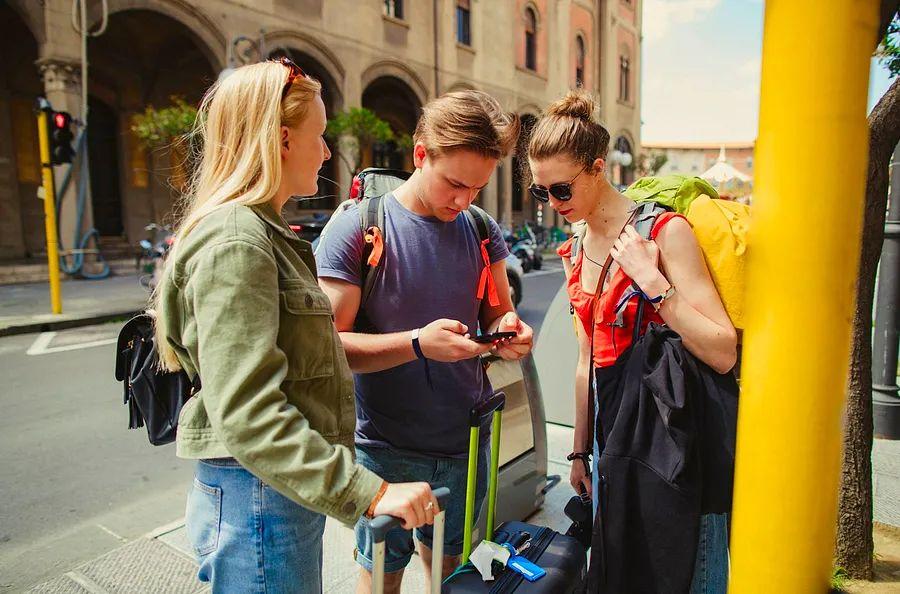Common travel scams in Europe — and ways to steer clear of them

As summer celebrations, major events like the Olympics and Euro 2024, along with the Taylor Swift excitement, draw crowds to Europe, it's crucial to be aware of the scammers lurking among the influx of tourists.
From the lively avenues of Paris to the charming pathways of Istanbul, staying informed can ensure your travels remain enjoyable and free from scams. Here’s a closer look at some notorious travel scams and advice on how to dodge them.
Investigate your destination
Scams across Europe can differ greatly from one location to another — what you may face in Prague could be completely unlike the situation in Mallorca.
Certain scams, like pickpocketing, are alarmingly common. To protect your travels, it's essential to learn about the specific scams that might occur in your chosen destinations. A simple search online can offer a treasure trove of insights, helping you identify and dodge these local tricks, so your safety remains a priority.
It's also vital to know the emergency contacts for your travel location, including any specific tourist police numbers. A quick lookup before you leave will equip you with all the essential contacts, enabling you to respond quickly to any problems that may arise during your trip. This foresight ensures you're well-prepared and can handle situations confidently.
Familiarize yourself with prevalent scams across Europe.
 Photo by ANDREYPOPOV/GETTY IMAGES
Photo by ANDREYPOPOV/GETTY IMAGESWhile certain scams like the carpet trick or the 'Grand Palace is closed today' ruse are more common in Africa and Asia, Europe has its own array of scams to be cautious of. It's advisable to research the specific scams related to your destination, but here are some frequent ones to be aware of.
Friendship bracelet trick: This scheme is prevalent in cities like Paris and Milan. A scammer may approach you with a request to tie a bracelet on your wrist and then demand payment afterward. Meanwhile, an accomplice could be pickpocketing you while you’re distracted.
Trileros: Be wary of street games such as Trileros found in Mallorca and various Spanish cities. Scammers entice you to guess which cup conceals an item. The game is rigged, ensuring you lose, and players are often pressured into paying.
Car rental con: If you're driving in areas like the Costa Brava, be cautious of anyone signaling that you have a flat tire. Stopping can set up a scenario where one scammer distracts you about the 'flat' while another pilfers items from your car.
Herb/flower good luck ruse: Beware of individuals offering herbs or flowers, such as lavender or rosemary, claiming they bring good luck. Accepting these can lead to pickpocketing or being followed until you hand over money.
Spilling distraction and photobombers: A common diversion tactic involves a scammer 'accidentally' spilling something on you—be it ketchup or water. While you're distracted with the mess, an accomplice might seize the chance to steal from you. This also applies to someone unexpectedly jumping into your photo, serving as a distraction while another person rummages through your belongings.
Taxi tricks: These scams are quite common and come in many forms, such as drivers taking longer routes than necessary, claiming the meter is malfunctioning, or giving incorrect change while insisting you paid with a smaller bill than you actually did.
Baby doll/pickpocket scheme: In this scenario, someone might drop an item in front of you. As you lean down to assist, pickpockets take advantage of your distraction to empty your pockets. Always stay alert, especially when someone is trying to divert your attention.
Turkey drop: Similar to the baby doll scam, a scammer will drop something valuable and seek your help. While you’re focused on that, an accomplice may be rifling through your belongings.
Istanbul shoe shining brush: A shoeshiner will 'accidentally' drop his brush near you. When you pick it up and return it, he offers a shoeshine as thanks but then insists on payment. He often pressures you by starting the service before you’ve even agreed to it.
Paris clipboard trick: I just got back from Paris, and this one is still fresh in my mind. You might come across someone with a clipboard soliciting signatures for a petition supposedly for a deaf/mute organization, usually written in English for tourists. The form features fake signatures and a line for donations. While you sign, you’re pressured into giving more than you intended—or your wallet is targeted by an accomplice.
Unlicensed tour guides, taxis, and ticket vendors: Be cautious of offers for tours, transport, or tickets that appear too enticing. Unofficial services often charge outrageous prices or sell counterfeit tickets.
Art scam: Common in Italy, scammers display paintings for sale in crowded areas. If you venture too close, they’ll claim you stepped on their artwork and demand compensation.
Transparent cup trick: Typically found in Paris, a scammer will set a clear cup with change on the sidewalk. If you accidentally tip it over, they’ll guilt you into giving them more money.
Photo scam: Exploiting the rise of influencers, scammers now offer to take your picture with their phone, only to later ask for payment for each photo they send you.
Here's how to steer clear of these scams (and others):
 Photo by LUIS ALVAREZ/GETTY IMAGES
Photo by LUIS ALVAREZ/GETTY IMAGES- Stay cautious of approaching strangers. If you need assistance with transportation, guides, or souvenirs, it's best to handle it yourself. This way, you can avoid unwanted interactions. If someone comes toward you with lavender or a friendship bracelet, promptly walk away. Keep your hands at your sides, turn away confidently, and refuse to touch anything if you can't leave the situation immediately.
- Avoid physical contact. While personal space norms can differ in Europe, be mindful of your surroundings. In crowded areas or public transport, hold your bag securely or keep your backpack in front of you. If someone makes contact, quickly check your belongings. It may seem overly cautious, but it’s better to be safe.
- Check reviews. Always look for recent reviews for any services you intend to use. Websites like TripAdvisor and Google Reviews can help identify potential scams.
- Stay updated via social media. Platforms like TikTok are great for real-time, user-generated content where travelers share their scam experiences. These short videos can effectively highlight what to look out for.
- Book directly. Arrange travel accommodations or services through official websites or trusted providers. Direct bookings minimize the risk of intermediary scams and often offer better customer service and guarantees. This approach not only ensures authenticity but can also lead to better rates and terms.
- Keep your belongings secure. Always maintain visibility and access to your possessions. Avoid leaving your bag on the back of a chair or on the ground, especially in bustling cities like Barcelona, known for theft. Carry only essentials and store important documents like your passport in a hotel safe.
- Choose ride-hailing services. When in unfamiliar cities, opt for ride-hailing apps instead of traditional taxis. This allows you to use a linked credit card for transparent fare calculations and lets you track the quickest route on your phone. This setup reduces language barriers and provides a record of your trip, useful if issues arise.
- Exercise caution with rental cars. Stay alert while driving a rental vehicle. Avoid stopping for strangers, even if they claim you have a flat tire. At rest stops, take valuables with you, and consider entering in shifts while keeping an eye on your car.
- Thoroughly verify home rentals. Be cautious of overly attractive rental listings. Opt for accommodations with numerous positive reviews or those hosted by verified "superhosts." If your rental is misrepresented or if the host tries to redirect you to a different property, contact the booking platform immediately to report the issue and document the situation. Consider travel insurance as a safety net for such scenarios.
- Stay vigilant during social outings. Be especially careful while enjoying nightlife; excess drinking can make you more vulnerable. Have fun, but remain aware of your surroundings and belongings.
- Use credit cards for transactions. Whenever possible, pay with a credit card. This method protects you from incorrect change or disputes over cash amounts. Credit card transactions create a digital record that can be easily verified.
By adhering to these recommendations, you can bolster your safety and lower the likelihood of falling victim to scams or theft while traveling in Europe.
Here's what to do if you find yourself scammed:
- Stay calm.
- Contact the police as soon as possible to report the scam. Always keep a copy of the report for your records.
- If you’ve been injured in any way, seek medical attention immediately.
- Cancel any credit cards and reach out to your embassy if you need to replace an ID or passport before leaving.
- Notify your travel insurance provider if needed.
- Don’t feel ashamed. As mentioned earlier, scams can affect anyone, even seasoned travelers. Sharing your experience can help others avoid similar situations.
Key Takeaway
Traveling is about making memories, not lamenting lost opportunities. This summer, equip yourself with knowledge and a healthy sense of skepticism. Whether you're dismissing an overly enticing tour offer or avoiding a street scam in Paris, staying informed and vigilant is your best protection. Keep these tips in mind for a safer and more enjoyable European journey.
Evaluation :
5/5



